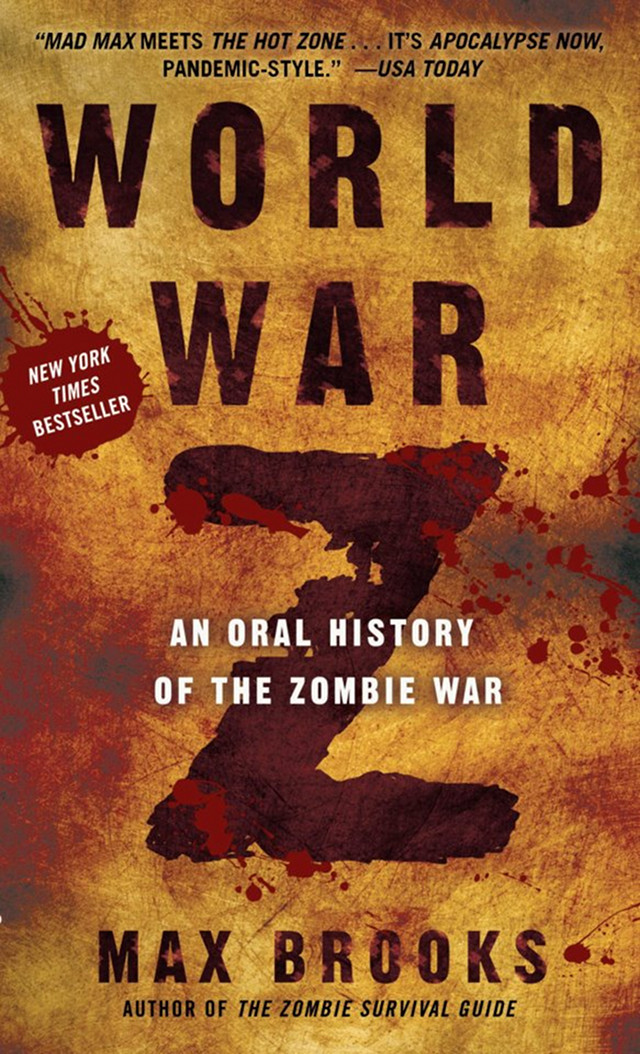SUMMARY
This is AI generated summarization, which may have errors. For context, always refer to the full article.

MANILA, Philippines – The world has been abuzz over “World War Z,” the recent blockbuster about a world overrun by zombies. Before I went to watch the film, friends who’d read Max Brooks’ 2006 novel told me that it would be easy to like the movie if I hadn’t read the book, but if I had read it, I would just be disappointed.
Having not read the book, I left the screening of “World War Z” a bit shaken and tired from all the action. The intent of the summer horror flick is to freak audiences out, so I guess the film did its job, and I was content.
‘World War Z’: Exciting zombie movie
After picking up a copy of the original book right after the screening, I have to agree with fans of the book: reading the book will make you disappointed in the movie version, because it shows you the material the director and screenwriters had to work with and the waste it went to.
The book is nothing like the movie: it’s much smarter, and much more ambitious than what the movie tried to do. “World War Z: An Oral History of the Zombie War” is packaged as a series of interviews with citizens, soldiers, government officials and other characters from around the world.
The interviews take place 10 years after the Zombie War, after humanity’s struggle to fight the dead for years. Entire cities and nations have fallen to the zombies, and every culture is dealing with the aftermath in their own way. Meanwhile, the movie follows the narrative of Gerry Lane, former UN investigator and current stay at home dad who only seems to care about his family while the world crumbles. Hmm.
The movie had opportunities to critique social responses to disaster — the failure of a policeman to intervene during an assault in a grocery store, the propensity of experts to cower in fear rather than observe a disaster. Unfortunately, the movie failed to capitalize on any of these moments, and instead devoted screen time to Brad Pitt’s chiseled jaw.
In contrast, the book has the emotional punch of the film’s sentimental moments while successfully critiquing human behavior on a global scope. Each narrative speaks of loss, fear and hopelessness as expressed in various cultures. The blind gardener and the otaku (“geek” in Japanese) from Kyoto, for example, shun evacuation and fight the zombies for the glory of their nation, which hearkens back to the nationalistic spirit of the yamato.
One major theme of “World War Z” is the breakdown of justice in the face of disaster. When the world faces tsunamis, earthquakes and, in our own country, massive floods, is a plan that is logistically expedient but perhaps unfair to some worth pursuing? These are the ideas that the military officials and soldiers in “World War Z: An Oral History of the Zombie War” grapple with.
Watch Max Brooks address the US Naval War College on the world’s preparedness for disaster:
Readers who approach “World War Z” expecting the freak factor of the film will be disappointed. Approach the book not as a horror novel, but as a geopolitical and cultural thought experiment through the lens of the zombie apocalypse. This is refreshing: here’s a book that approaches a terrifying phenomenon to see what it can teach us about pandemics and disasters.
The audiobook also comes highly recommended. I listened to clips of it on YouTube and it sounds like it captures the spirit of the book as an oral history perfectly.
Listen to clips from the audiobook here:
For those who enjoyed the movie, reading the book will not be redundant; it’s a completely different take on the zombie phenomenon.
For those who didn’t enjoy the movie, perhaps the book will be a relief. Max Brooks has written a compelling speculative history of the world, and readers will not want to miss it. – Rappler.com

Florianne L. Jimenez teaches Literature and College Writing at the University of the Philippines Diliman. She is a Palanca award-winning non-fiction writer, with a creative interest in the self, places, and consciousness. She has a massive to-be-read pile dating back to 2008, which includes such titles as ‘The Collected Stories of Gabriel Garcia Marquez,’ ‘Book 5 of Y: The Last Man,’ and ‘The Collected Works of TS Spivet: A Novel.’
Add a comment
How does this make you feel?
There are no comments yet. Add your comment to start the conversation.